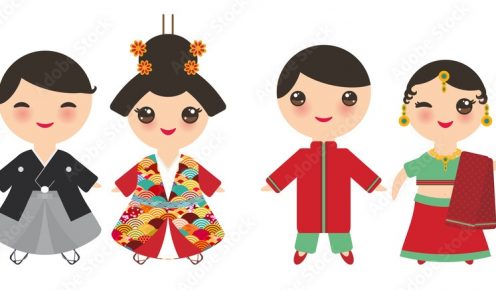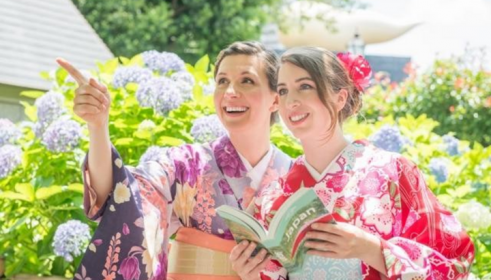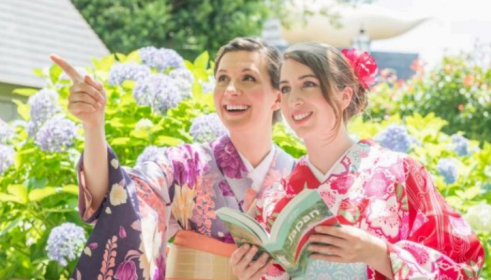Idioms and proverbs are commonly used in everyday conversations in japan. Learning about them will open the door to many new insights about Japanese culture and language. And you will gain a deeper understanding about the wisdom in these phrases. So, let’s learn about some of the most common idioms and phrases in the Japanese language and deepen our understanding of this intricate yet beautiful language.
1. “Fall seven times and stand up eight” (七転び八起き – Nana korobi ya oki):
You may already be familiar with this one. It means we should build resilience and strength within ourselves to be able to keep on doing things that are complex, things that are difficult or things that scare us.
2. “Even can monkeys fall from trees” (猿も木から落ちる – Saru mo ki kara ochiru):
This idiom is very motivating as it suggests that everyone makes mistakes. Nobody in this world is perfect and we all make mistakes from time to time. So, don’t feel bad about yourself for making mistakes. You are doing great and you should be proud of that.
3. “The nail that sticks out gets hammered down” (出る杭は打たれる – Deru kui wa utareru):
This is a thought provoking proverb that makes one aware of the potential issues that may arise due to not conforming with the society and standing up for yourself. This proverb makes us face reality and makes us understand that when we become ourselves and try to carve our own path we may meet people who are jealous of us or people who would want to bring us down. In such cases we should be able to understand that we can face this and rise again.
4. “After winning the battle, tighten your helmet cord” (勝って兜の緒を締めよ – Katte kabuto no o wo shimeyo):
This idiom in Japanese is very important as it tells you to be prepared and humble even after achieving success. It tells us to never stop practicing and keep improving your skills.
5. “A kind heart is the most important thing” (情けは人の為ならず – Nasake wa hito no tame narazu):
It is a very beautiful proverb which means being kind is the best thing we can do for ourselves. Yes, being kind benefits others, but the one who benefits the most by being kind is ourselves.
6. “One’s true nature will eventually emerge” (石の上にも三年 – Ishi no ue ni mo san nen):
This proverb teaches us that we should be patient and let the course of time let our full potential shine. We should give things time and eventually the full potential of someone or something will come about.
7. “Not knowing is Buddha” ( 知らぬが仏 – Shiranu ga hotoke):
This idiom is closely related to the English proverb “ignorance is bliss”. It tells us that sometimes it is better to not know something in order to keep our sanity and happiness.
8. “Giving birth is easier than worrying about it.” ( 案ずるより産むが易し- Anzuru yori umu ga yasushi):

This very beautiful idiom is about doing the things that we are afraid of doing. It tells us that it is better to just do something instead of worrying about it. When we worry a lot we develop a habit of procrastination, that in turn makes it more difficult to complete tasks thus increasing your anxiety further.
9. “If you talk about tomorrow, the mouse in the ceiling will laugh” (明日のことを言うと天井のネズミが笑う” – Ashita no koto wo iu to tenjō no nezumi ga warau):
This idiom in Japanese is about not worrying a lot about the future. As life is dynamic and not everything we say works out the way we want. So, we should focus on the present moment more and not worry about what to do in the future.
10. “After the rain falls, the ground becomes firmer” (雨降って地固まる – Ame futte ji katamaru):
This proverb makes us aware of the fact that we must be and our hopes high as when the adversity will end our foundation will become even more strong.
11. “one’s own actions, one’s own results” (自業自得” Jigō jitoku):
It tells us that the actions we take in life will dictate what outcomes we will have. It closely translates to the English proverb “You reap what you sow”. Our outcomes, whether success or failure, depend on our actions and choices.
12. “one time, one meeting” (一期一会” Ichigo ichie):
This philosophical idiom is about cherishing each moment in life. Originating from Japanese tea ceremonies this concept is about the fleeting nature of every moment. A moment that goes can never come back. We should be present and aware in each moment to live a fulfilling life.












